Skincare Beauty Tips for Girls
Skincare tips for girls. Discover essential practices for glowing skin, effective acne solutions, and timeless beauty secrets skincare
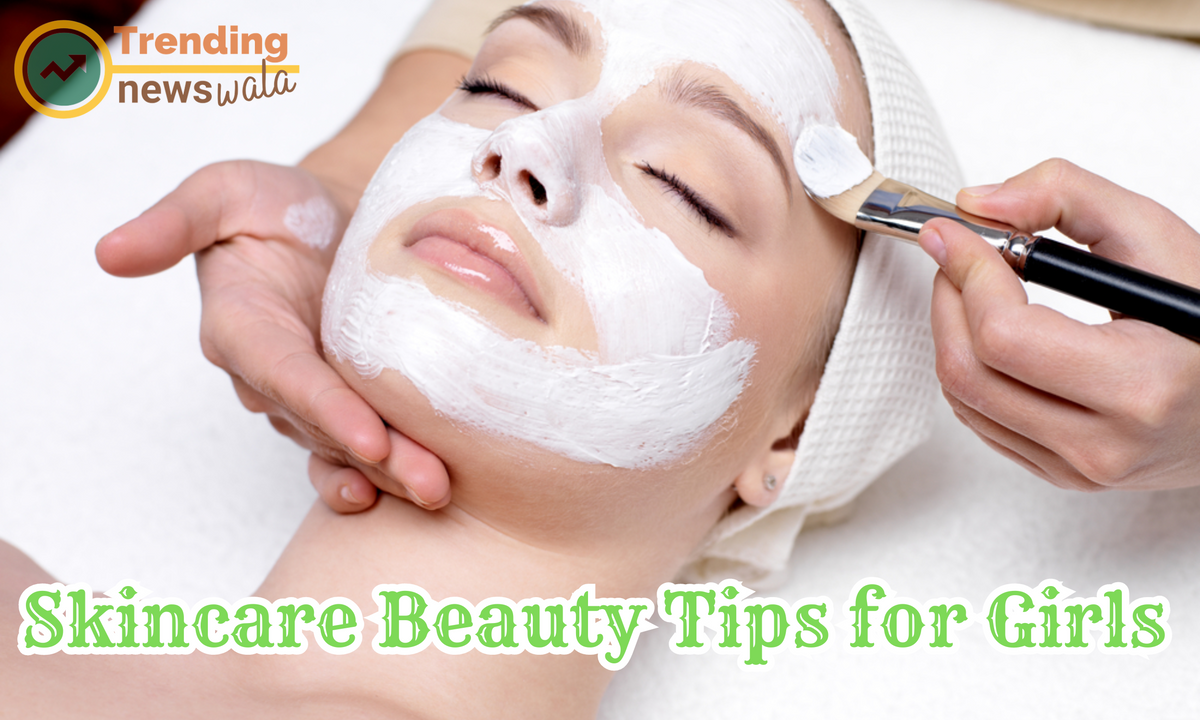
Achieving and maintaining healthy, radiant skin is a goal many girls aspire to. With a plethora of skincare products and advice available, it's essential to navigate through the noise and embrace a personalized skincare routine that caters to individual needs. In this article, we'll delve into effective skincare beauty tips for girls that focus on promoting a natural glow and nurturing skin health.
Radiant, healthy skin is achievable with a consistent and personalized skincare routine. By following these beauty tips for girls, you can nurture your skin, embrace your natural beauty, and enjoy a confident and glowing complexion. Remember, patience is key, and the results of a diligent skincare routine will become evident over time.
Consistent Cleansing
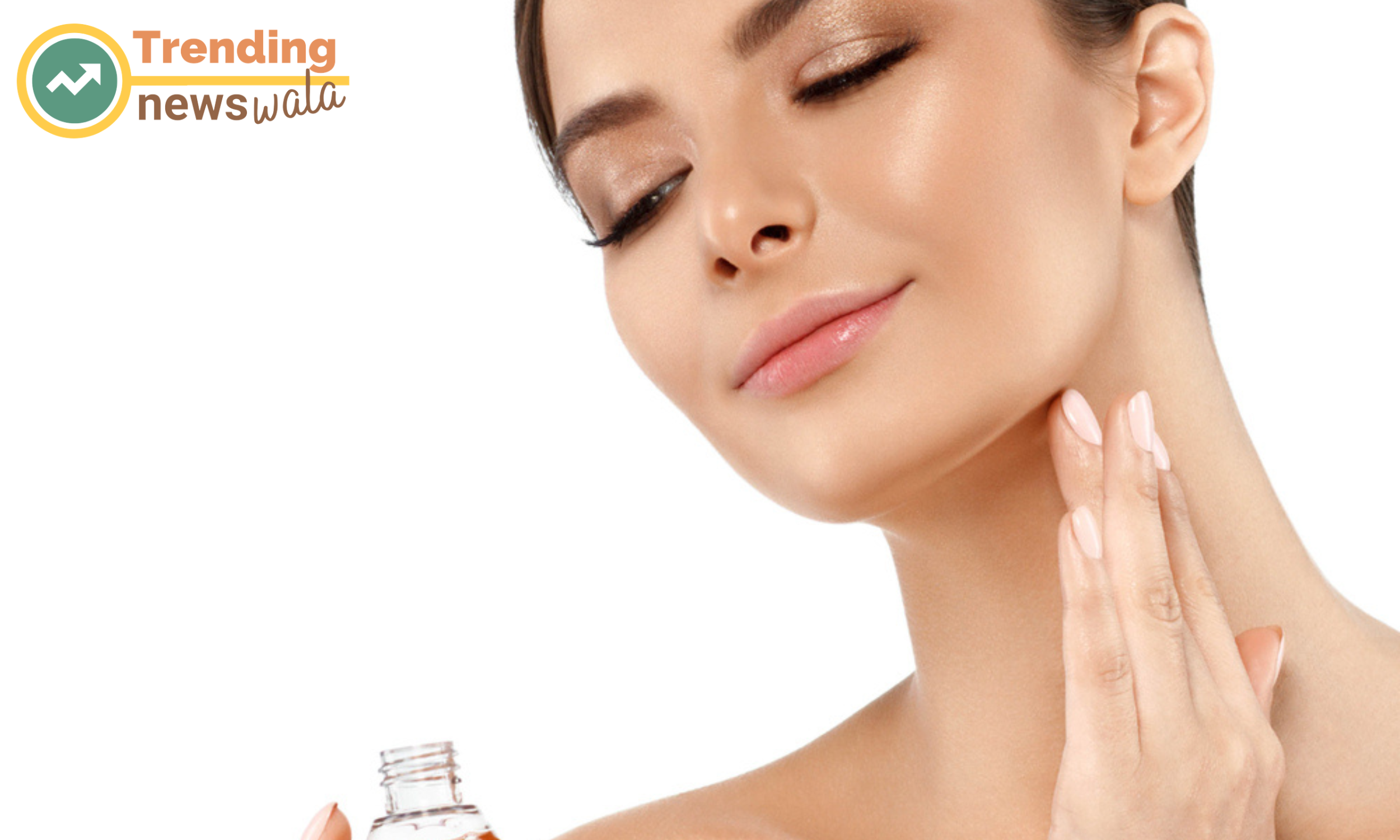
Consistent cleansing is a crucial aspect of any effective skincare routine, and it involves the regular and thorough removal of impurities, makeup, and excess oils from your skin. Here are more details on consistent cleansing and why it is essential for maintaining healthy and radiant skin:
Selecting the Right Cleanser: The first step in consistent cleansing is choosing an appropriate cleanser for your skin type. Different skin types have different needs, so if you have oily skin, you may opt for a gel-based or foaming cleanser, while those with dry skin may prefer a cream or lotion cleanser. If your skin is sensitive, choose a gentle, fragrance-free cleanser to avoid irritation.
Morning and Night Routine: Consistency involves making cleansing a part of both your morning and nighttime routines. In the morning, cleansing helps remove any sweat or oils that have accumulated overnight. In the evening, it is crucial to remove makeup, sunscreen, and the pollutants your skin encountered during the day.
Gentle Cleansing Techniques: While cleansing, be gentle with your skin. Avoid scrubbing too hard, as aggressive scrubbing can irritate the skin and disrupt the natural barrier. Use your fingertips or a soft cloth, and massage the cleanser in a circular motion to promote blood circulation and effective cleansing.
Double Cleansing (When Necessary): For those who wear makeup or sunscreen, a double cleansing method can be beneficial. Start with an oil-based cleanser to break down and remove makeup and sunscreen, followed by a water-based cleanser to remove any remaining impurities. Double cleansing ensures a thorough clean without over-drying the skin.
Consistent Frequency: Cleansing should be done consistently but not excessively. Over-cleansing can strip the skin of its natural oils, leading to dryness and potential irritation. For most people, cleansing twice a day—morning and night—is sufficient. However, individuals with dry or sensitive skin may find that cleansing once a day is more appropriate.
Adapt to Your Skin's Needs: Pay attention to your skin's needs and adjust your cleansing routine accordingly. For example, during periods of increased oiliness or breakouts, you might opt for a cleanser with ingredients like salicylic acid. On days when your skin feels dry or sensitive, choose a more hydrating and gentle cleanser.
Rinse Thoroughly: After applying the cleanser, make sure to rinse your face thoroughly with lukewarm water. Residue left on the skin can lead to irritation and interfere with the effectiveness of subsequent skincare products.
Pat Dry, Don't Rub: After cleansing, pat your face dry with a clean, soft towel. Avoid rubbing the skin, as this can cause friction and irritation. Patting gently helps maintain the skin's moisture balance.
Consistent cleansing sets the foundation for a successful skincare routine, allowing other products to work more effectively. By incorporating this step into your daily routine with care and attention to your skin's specific needs, you can promote a clear, healthy complexion over time.
Regular and thorough cleansing is the foundation of a good skincare routine. Use a gentle cleanser suited to your skin type to remove impurities, excess oil, and makeup. Cleansing helps prevent breakouts and allows other skincare products to be more effective.
Hydration is Key
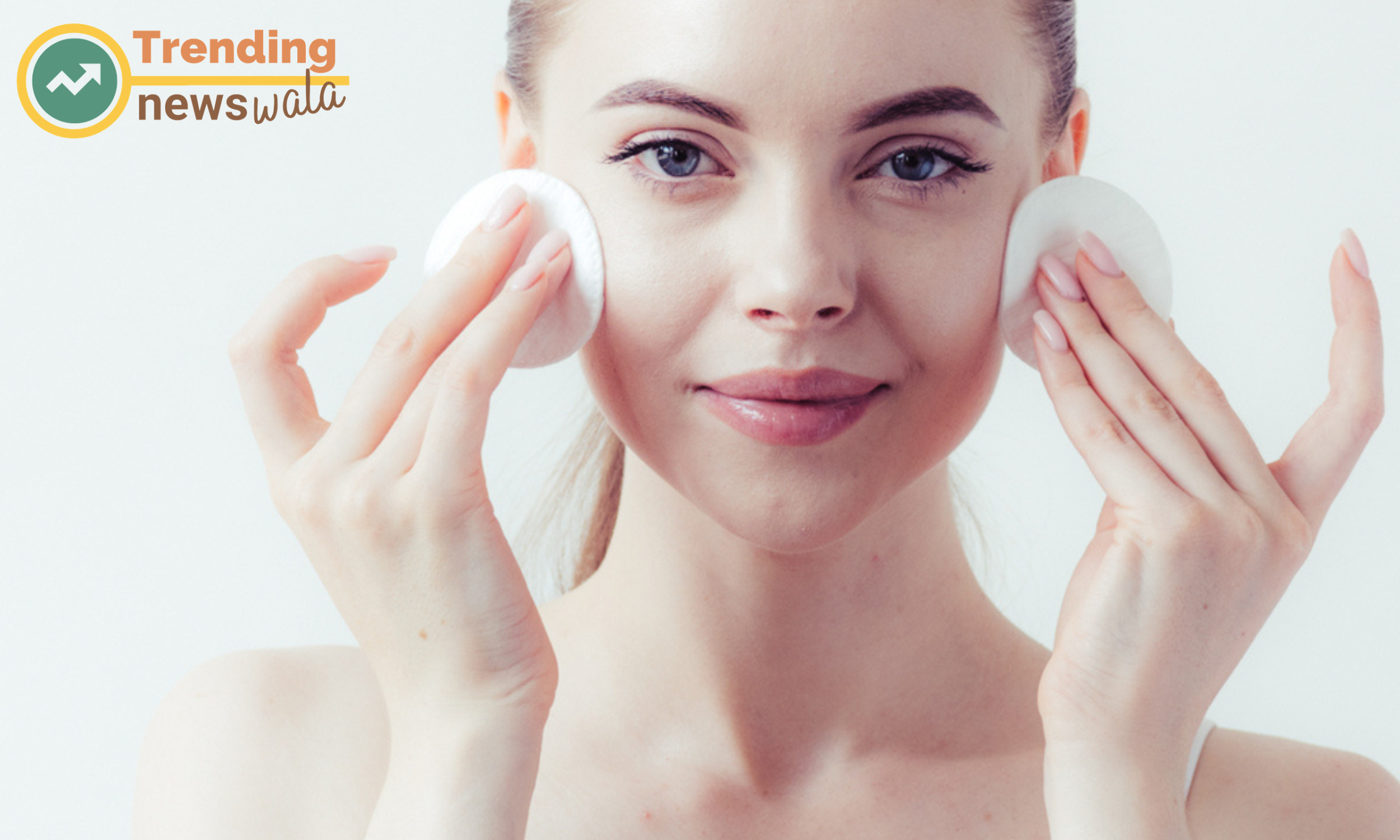
Hydrated skin is healthy skin. Ensure you drink an adequate amount of water throughout the day to keep your skin well-hydrated from the inside. Additionally, use a suitable moisturizer to lock in moisture and maintain a supple complexion.
Absolutely, let's delve into the importance of hydration and why it is considered a key element in achieving and maintaining healthy skin.
Maintaining Skin Moisture: Hydration is crucial for maintaining the skin's natural moisture balance. Well-hydrated skin is more supple, plump, and less prone to issues like dryness, flakiness, or excessive oiliness. When the skin is adequately hydrated, it functions as a more effective barrier against environmental aggressors.
Preventing Dryness and Flakiness: Dry skin lacks sufficient water content, leading to a feeling of tightness, flakiness, and even the development of fine lines. Regular hydration helps alleviate dryness, keeping the skin smooth and comfortable.
Balancing Oil Production: Paradoxically, dehydrated skin can lead to an overproduction of oil as the skin attempts to compensate for the lack of moisture. By keeping the skin well-hydrated, you can help regulate oil production, reducing the likelihood of acne and breakouts.
Improving Skin Elasticity: Adequate hydration contributes to improved skin elasticity. Skin that retains its elasticity is less prone to sagging and the formation of wrinkles. This is particularly important as the skin naturally loses some elasticity with age.
Enhancing Skin Tone and Texture: Hydrated skin appears more radiant, with an even tone and smoother texture. When the skin is well-hydrated, it reflects light better, giving it a healthy and youthful glow.
Supporting the Skin's Natural Functions: Proper hydration supports the skin's natural functions, including the shedding of dead skin cells and the regeneration of new ones. This contributes to a more efficient skin renewal process, promoting a fresher and more vibrant complexion.
Boosting the Efficacy of Skincare Products: Hydrated skin allows skincare products to be more effective. When the skin is well-moisturized, it can better absorb and retain the benefits of serums, moisturizers, and other skincare products.
Preventing Transdermal Water Loss: Transdermal water loss is the process by which water evaporates from the skin's surface. Proper hydration helps create a protective barrier, reducing water loss and maintaining optimal hydration levels within the skin.
Choosing the Right Hydration Products: Selecting the right hydrating products for your skin type is essential. Water-based moisturizers are suitable for those with oily or combination skin, while creamier formulations work well for individuals with dry skin. Ingredients like hyaluronic acid, glycerin, and ceramides are known for their hydrating properties.
Internal Hydration: Hydration isn't just about external skincare products; it also involves internal factors. Drinking an adequate amount of water and consuming hydrating foods, such as fruits and vegetables, contribute to overall skin health.
In summary, maintaining optimal skin hydration is a fundamental aspect of skincare. It not only addresses immediate concerns like dryness and flakiness but also plays a vital role in preventing long-term issues like premature aging. Incorporating hydrating products into your skincare routine, both externally and internally, is a proactive step towards achieving and maintaining healthy, radiant skin.
Sun Protection
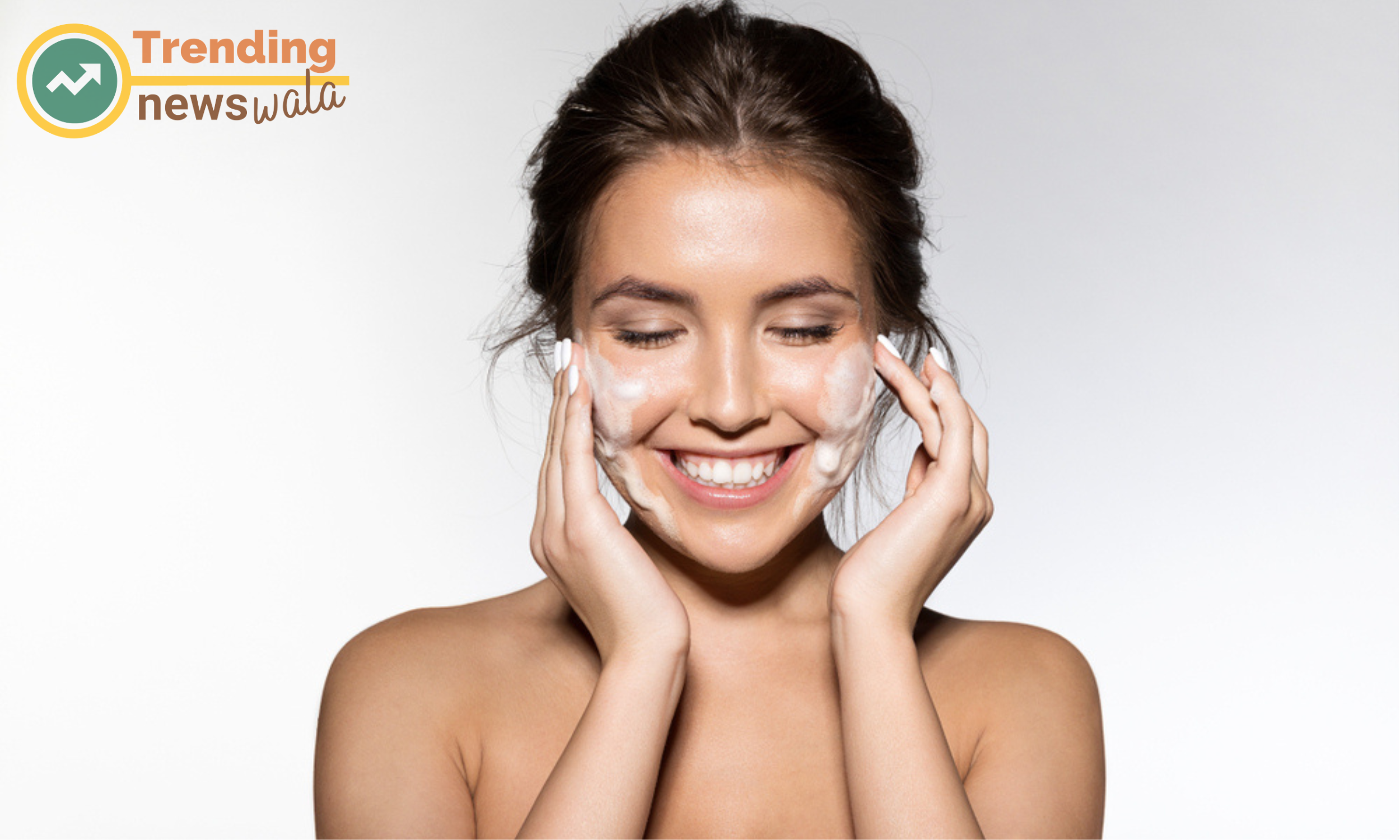
Sun protection is a critical component of any skincare routine, playing a key role in preventing sun damage, premature aging, and reducing the risk of skin cancer. Here are more details on the importance of sun protection and how to effectively safeguard your skin from the sun's harmful rays:
Understanding UV Radiation: The sun emits ultraviolet (UV) radiation, which consists of UVA and UVB rays. UVA rays penetrate the skin deeply and contribute to premature aging, while UVB rays are responsible for sunburns. Prolonged exposure to both types of radiation can increase the risk of skin cancer.
Choose a Broad-Spectrum Sunscreen: When selecting a sunscreen, opt for a broad-spectrum formula that protects against both UVA and UVB rays. Look for a sun protection factor (SPF) of at least 30 for daily use, and higher for extended sun exposure.
Apply Sunscreen Every Day: Sunscreen should be applied every day, even on cloudy or overcast days. UV rays can penetrate clouds, and consistent use of sunscreen helps protect the skin from cumulative sun damage.
Use Enough Sunscreen: Most people don't apply enough sunscreen, which can compromise its effectiveness. As a general guideline, use about a nickel-sized amount for the face and a shot glass-sized amount for the body. Reapply every two hours, or more frequently if swimming or sweating.
Apply Sunscreen to All Exposed Skin: Ensure that all exposed areas of the skin are covered with sunscreen, including the face, neck, ears, hands, and any other exposed body parts. Don't forget often overlooked areas like the tops of the feet and the back of the neck.
Sunscreen and Makeup: If you wear makeup, consider using a moisturizer or foundation that includes SPF. However, relying solely on makeup for sun protection might not provide sufficient coverage, so it's recommended to use a dedicated sunscreen as well.
Water-Resistant Formulas: If you'll be swimming or engaging in activities that cause sweating, choose a water-resistant sunscreen. Keep in mind that even water-resistant sunscreens should be reapplied after swimming or excessive sweating.
Seek Shade and Wear Protective Clothing: Sunscreen should be complemented by other protective measures. Seek shade during peak sunlight hours ( 10 a.m. to 4 p.m.), and wear protective clothing, such as wide-brimmed hats, sunglasses, and long sleeves.
Eye Protection: Don't forget to protect your eyes from harmful UV rays by wearing sunglasses that provide 100% UVA and UVB protection.
Regular Skin Checks: Perform regular self-examinations of your skin to monitor for any changes, including new moles or spots. If you notice any unusual changes, consult a dermatologist promptly.
Sun Protection for Lips: The lips are often overlooked when it comes to sun protection. Use a lip balm with SPF to shield your lips from the sun's damaging effects.
Be Mindful of Reflection: Remember that surfaces like water, sand, and snow can reflect UV rays and increase your exposure. Take extra precautions when near these reflective surfaces.
Consider Your Skin Type: Individuals with fair skin or a history of sunburns may be more susceptible to sun damage and should take extra precautions, including using higher SPF and seeking shade more frequently.
In conclusion, consistent and effective sun protection is crucial for maintaining healthy skin and preventing long-term damage. Incorporate these practices into your daily routine, and make sun protection a non-negotiable step for the health and beauty of your skin.
Protecting your skin from harmful UV rays is crucial. Incorporate a broad-spectrum sunscreen into your daily routine, even on cloudy days. Sunscreen shields your skin from premature aging, dark spots, and other sun-related damage.
Know Your Skin Type
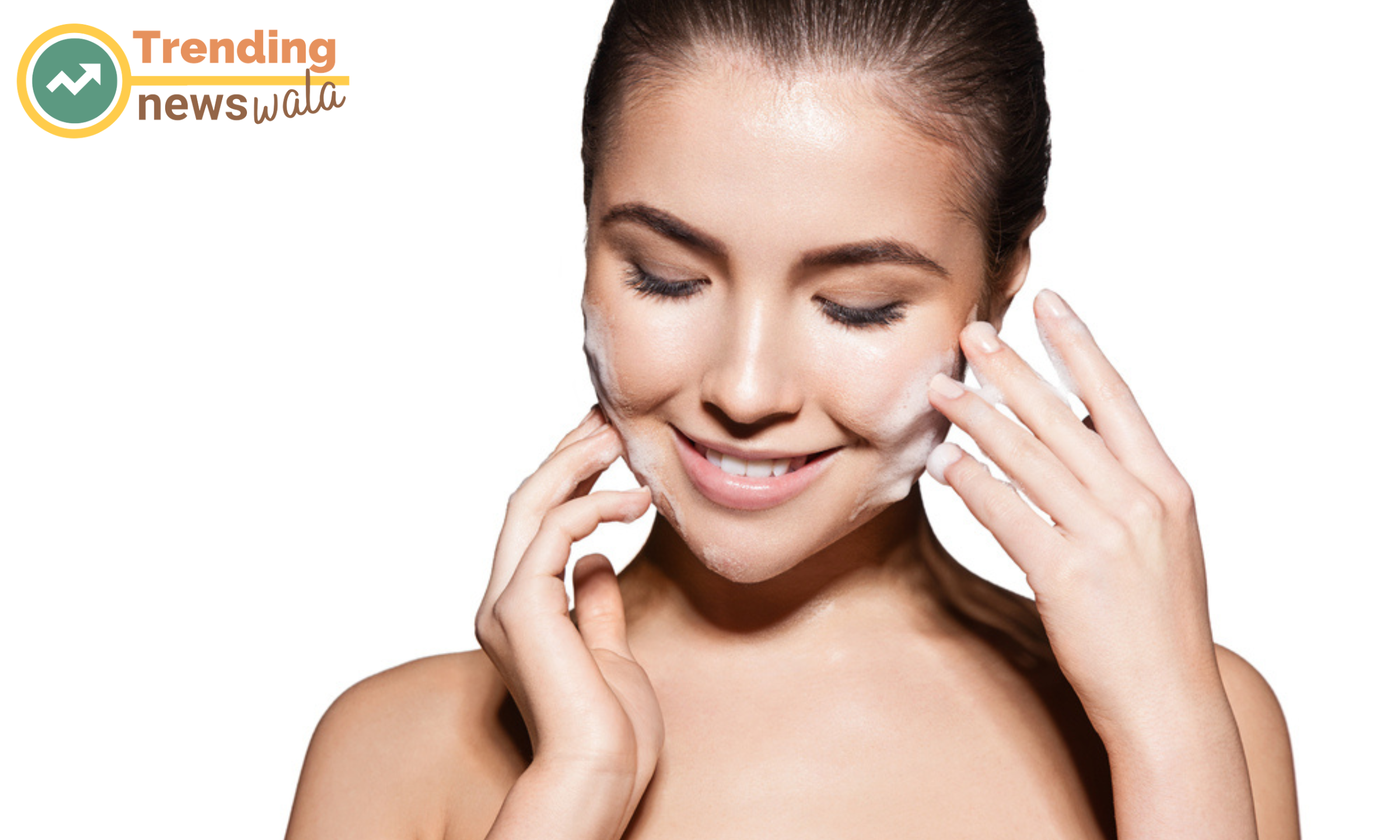
Understanding your skin type is a foundational step in creating an effective skincare routine tailored to your specific needs. There are five main skin types, and each comes with its own characteristics and considerations. Here's a detailed explanation of each skin type and how to identify yours:
Normal Skin:
- Characteristics: Normal skin is well-balanced, not too oily nor too dry. It has a smooth texture, small pores, and is generally free from major issues.
- Identifying Features: If you have few imperfections, little to no sensitivity, and a consistent texture, you likely have normal skin.
Oily Skin:
- Characteristics: Oily skin produces excess sebum, leading to a shiny complexion and enlarged pores. Individuals with oily skin may be prone to acne and blackheads.
- Identifying Features: If your face tends to get shiny, especially in the T-zone (forehead, nose, and chin), and you often deal with enlarged pores and acne breakouts, you likely have oily skin.
Dry Skin:
- Characteristics: Dry skin lacks sufficient moisture, resulting in a dull or rough appearance. It may feel tight or flaky, especially after cleansing.
- Identifying Features: If your skin often feels tight, looks dull, and you experience flakiness or rough patches, you likely have dry skin.
Combination Skin:
- Characteristics: Combination skin features a mix of different skin types. Commonly, individuals have an oily T-zone (forehead, nose, and chin) and dry or normal skin on the cheeks.
- Identifying Features: If you notice that different areas of your face have different characteristics, such as some parts being oily while others are dry or normal, you likely have combination skin.
Sensitive Skin: Characteristics: Sensitive skin is prone to redness, itching, and irritation. It may react negatively to certain skincare products or environmental factors.
Identifying Features: If your skin often becomes red, itchy, or irritated, and you have a tendency to react negatively to new skincare products or environmental factors, you likely have sensitive skin.
Tips for Identifying Your Skin Type:
Observe Without Products: Before applying any skincare products, observe your skin in its natural state. Pay attention to how it feels and looks without the influence of cleansers, moisturizers, or makeup.
Note Any Changes Throughout the Day: Skin conditions can change throughout the day. If you notice variations in oiliness, dryness, or comfort levels, this can provide clues about your skin type.
Consider Environmental Factors: Factors such as climate, seasons, and your location can impact your skin. For example, you may find your skin is oilier in humid conditions or drier in cold, dry climates.
Consult with a Dermatologist: If you're uncertain about your skin type or have specific concerns, consider consulting with a dermatologist. They can provide a professional assessment and offer personalized recommendations.
Once you've identified your skin type, you can choose skincare products and establish a routine that addresses your specific needs. Keep in mind that your skin type may change over time, so it's beneficial to reassess periodically and adjust your skincare routine accordingly.
Understanding your skin type is essential for selecting the right products. Whether you have oily, dry, combination, or sensitive skin, tailor your skincare routine to address your specific needs. Consult with a dermatologist if needed to determine your skin type accurately.
Exfoliation for Renewal
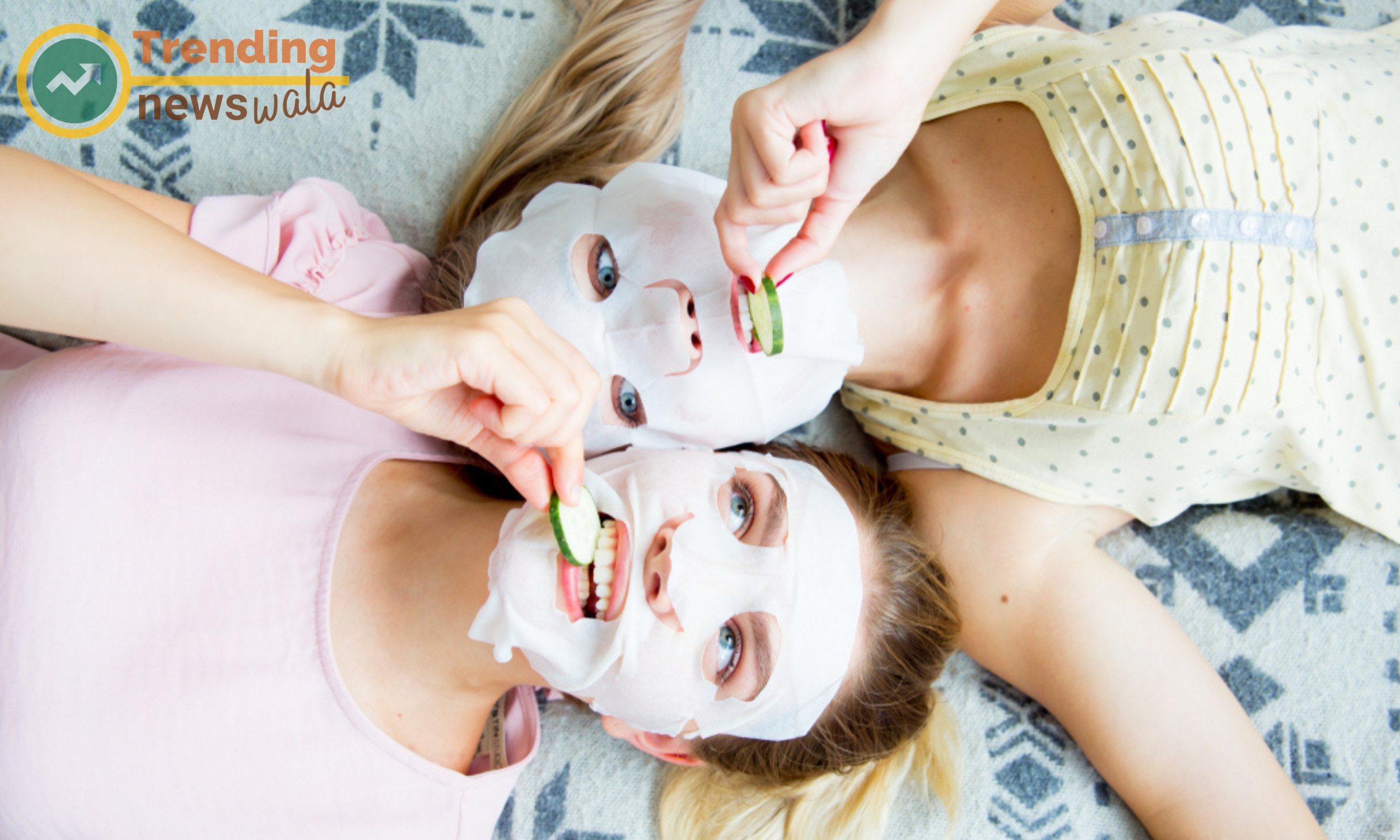
Exfoliation is a skincare technique that involves the removal of dead skin cells from the surface of the skin. This process helps to promote skin renewal, improve texture, and create a smoother, more radiant complexion. Here are more details on the benefits of exfoliation and how to incorporate it into your skincare routine:
Mechanical vs. Chemical Exfoliation:
- Mechanical Exfoliation: This involves physically scrubbing the skin's surface using abrasive particles or tools. Common examples include facial scrubs, brushes, or exfoliating gloves.
- Chemical Exfoliation: This method involves the use of chemical agents, such as alpha hydroxy acids (AHAs) or beta hydroxy acids (BHAs), to dissolve dead skin cells. Chemical exfoliants are available in various strengths, including mild daily exfoliants and stronger treatments for periodic use.
Benefits of Exfoliation:
- Removal of Dead Skin Cells: Exfoliation helps to slough off dead skin cells that can accumulate on the skin's surface, making the complexion appear dull.
- Improves Skin Texture: Regular exfoliation can smooth the skin's texture, reducing the appearance of fine lines, rough patches, and unevenness.
- Enhances Product Absorption: By removing the barrier of dead skin cells, exfoliation allows other skincare products to penetrate more effectively, increasing their overall efficacy.
- Stimulates Collagen Production: Some exfoliating ingredients, like certain acids, can stimulate collagen production, contributing to firmer and more youthful-looking skin.
Choosing the Right Exfoliant:
- For Sensitive Skin: Those with sensitive skin should opt for gentler exfoliants. Use mild chemical exfoliants with ingredients like lactic acid or choose finely-ground particles for mechanical exfoliation.
- For Oily or Acne-Prone Skin: BHAs, such as salicylic acid, are effective for penetrating oil and are suitable for those with oily or acne-prone skin.
- For Dry or Mature Skin: AHAs, like glycolic acid or lactic acid, can be beneficial for those with dry or mature skin, promoting hydration and addressing signs of aging.
Frequency of Exfoliation:
- Mechanical Exfoliation: 1-2 times a week is generally sufficient. Be cautious not to over-scrub, as this can lead to irritation.
- Chemical Exfoliation: Frequency varies based on the product and your skin's sensitivity. Start with once a week and gradually increase if your skin tolerates it well.
Precautions and Tips:
- Patch Test: Before using a new exfoliant, conduct a patch test to ensure your skin doesn't react adversely.
- Avoid Over-Exfoliation: Over-exfoliation can lead to irritation, redness, and sensitivity. Pay attention to your skin's response and adjust your routine accordingly.
- Sun Protection is Crucial: Exfoliation can make the skin more sensitive to sunlight. Always apply sunscreen, especially if using exfoliants with AHAs or BHAs.
DIY Exfoliating Masks:
- Oatmeal and Yogurt Mask: Mix ground oatmeal with yogurt for a soothing and exfoliating mask.
- Honey and Sugar Scrub: Combine honey and sugar for a natural, hydrating scrub.
Professional Exfoliation Treatments:
- Chemical Peels: Administered by skincare professionals, chemical peels use stronger acids to exfoliate and renew the skin. They are tailored to specific skin concerns and may require downtime.
Exfoliation is a valuable step in achieving and maintaining healthy, radiant skin. Tailor your exfoliation routine to your skin type and concerns, and if in doubt, consult with a skincare professional for personalized advice.
Regular exfoliation helps remove dead skin cells, unclog pores, and promote cell turnover. Choose a gentle exfoliator suitable for your skin type, and use it once or twice a week to reveal smoother, brighter skin.
Healthy Lifestyle Choices
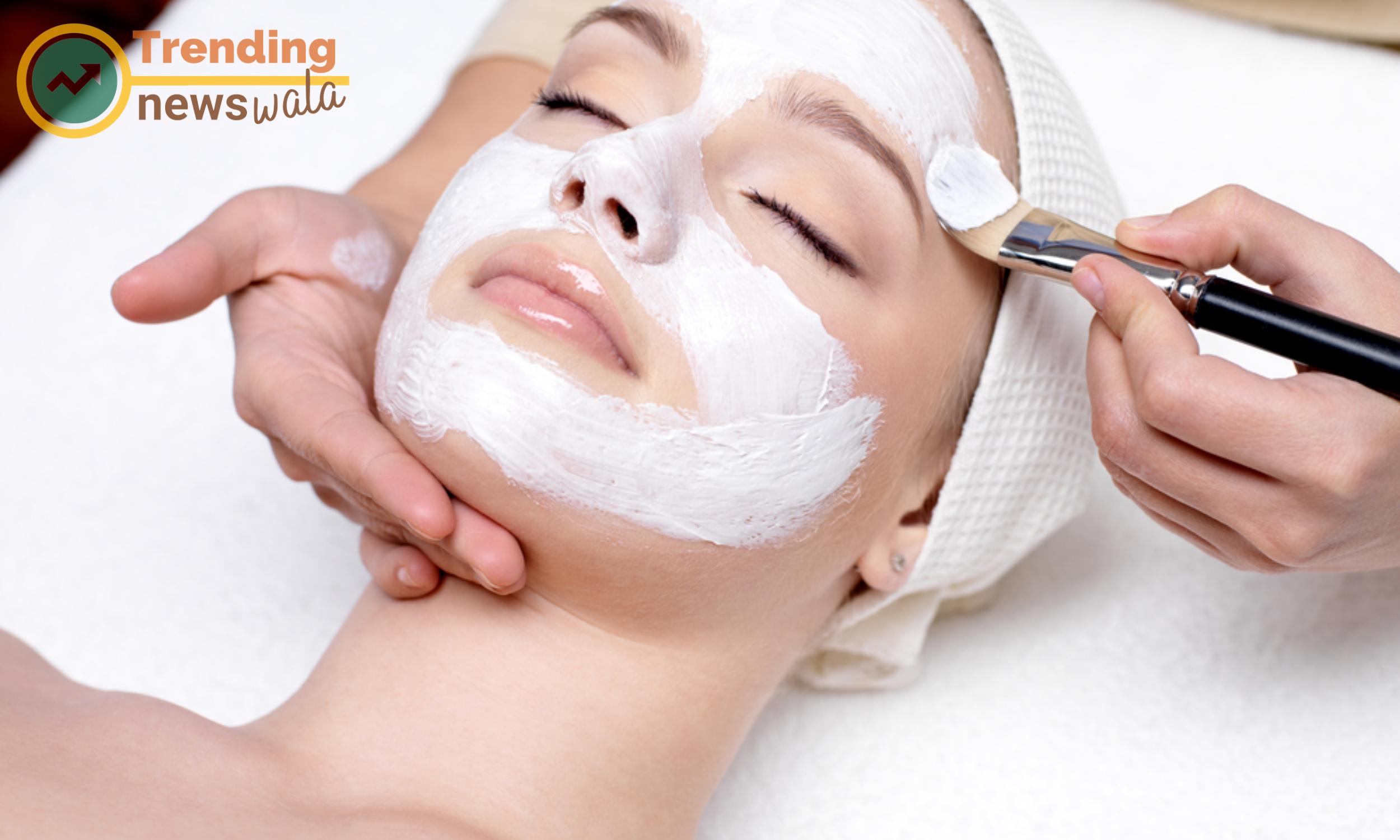
A healthy lifestyle is crucial for overall well-being, and it significantly influences the health and appearance of your skin. Adopting positive lifestyle choices can contribute to radiant, youthful skin. Here are more details on key aspects of a healthy lifestyle and how they impact your skin:
Nutrient-Rich Foods: Incorporate a variety of fruits, vegetables, whole grains, lean proteins, and healthy fats into your diet. These foods provide essential vitamins, minerals, and antioxidants that support skin health.
Hydration: Drink an adequate amount of water to keep your skin and body hydrated. Water helps flush out toxins and promotes a plump, radiant complexion.
Improved Circulation: Exercise enhances blood circulation, delivering oxygen and nutrients to skin cells. This boost in circulation contributes to a healthy complexion and supports the skin's natural repair processes.
Stress Reduction: Regular physical activity is an effective stress reducer. High stress levels can negatively impact the skin, contributing to issues such as acne and premature aging.
Skin Repair and Regeneration: During sleep, the body undergoes essential processes for skin repair and regeneration. Lack of sleep can lead to a dull complexion, dark circles, and accelerated aging.
Collagen Production: Adequate sleep supports collagen production, contributing to the skin's elasticity and firmness.
Impact on Skin Conditions: Chronic stress can exacerbate skin conditions such as acne, eczema, and psoriasis. Stress management techniques, such as meditation, deep breathing, or yoga, can help maintain skin health.
Prevention of Premature Aging: Sun exposure is a major factor in premature aging. Regular use of sunscreen, seeking shade, and wearing protective clothing are crucial for preventing sun damage, wrinkles, and hyperpigmentation.
Reduced Risk of Skin Cancer: Consistent sun protection significantly reduces the risk of developing skin cancer.
Avoiding Harmful Habits:
Limiting Smoking and Alcohol: Smoking and excessive alcohol consumption can contribute to premature aging and skin damage. Quitting smoking and moderating alcohol intake can positively impact your skin's health.
Cleansing and Moisturizing: Establish a consistent skincare routine that includes gentle cleansing and moisturizing. Cleanse to remove impurities, and moisturize to keep the skin hydrated and supple.
Sunscreen: As mentioned earlier, sunscreen is a non-negotiable part of a healthy skincare routine. Apply it daily, even on cloudy days, to protect against UV damage.
Choosing Clean Products: Opt for skincare and beauty products that are free from harsh chemicals, fragrances, and irritants. Clean and natural products are gentler on the skin.
Detecting Changes Early: Perform regular self-examinations to monitor your skin for any changes, such as new moles or spots. Early detection of irregularities can be crucial for skin health.
Holistic Health Assessment: Regular medical check-ups can identify and address overall health issues that may impact your skin. Conditions such as hormonal imbalances or nutritional deficiencies can affect skin health.
In summary, adopting a healthy lifestyle is not only beneficial for your overall health but also plays a significant role in the appearance and well-being of your skin. Consistent positive choices contribute to a radiant complexion, reduced risk of skin issues, and a more youthful appearance over time.
A healthy lifestyle contributes significantly to skincare. Ensure you get adequate sleep, as insufficient rest can lead to dull skin and dark circles. Maintain a balanced diet rich in fruits, vegetables, and antioxidants to nourish your skin from within.
Avoid Touching Your Face
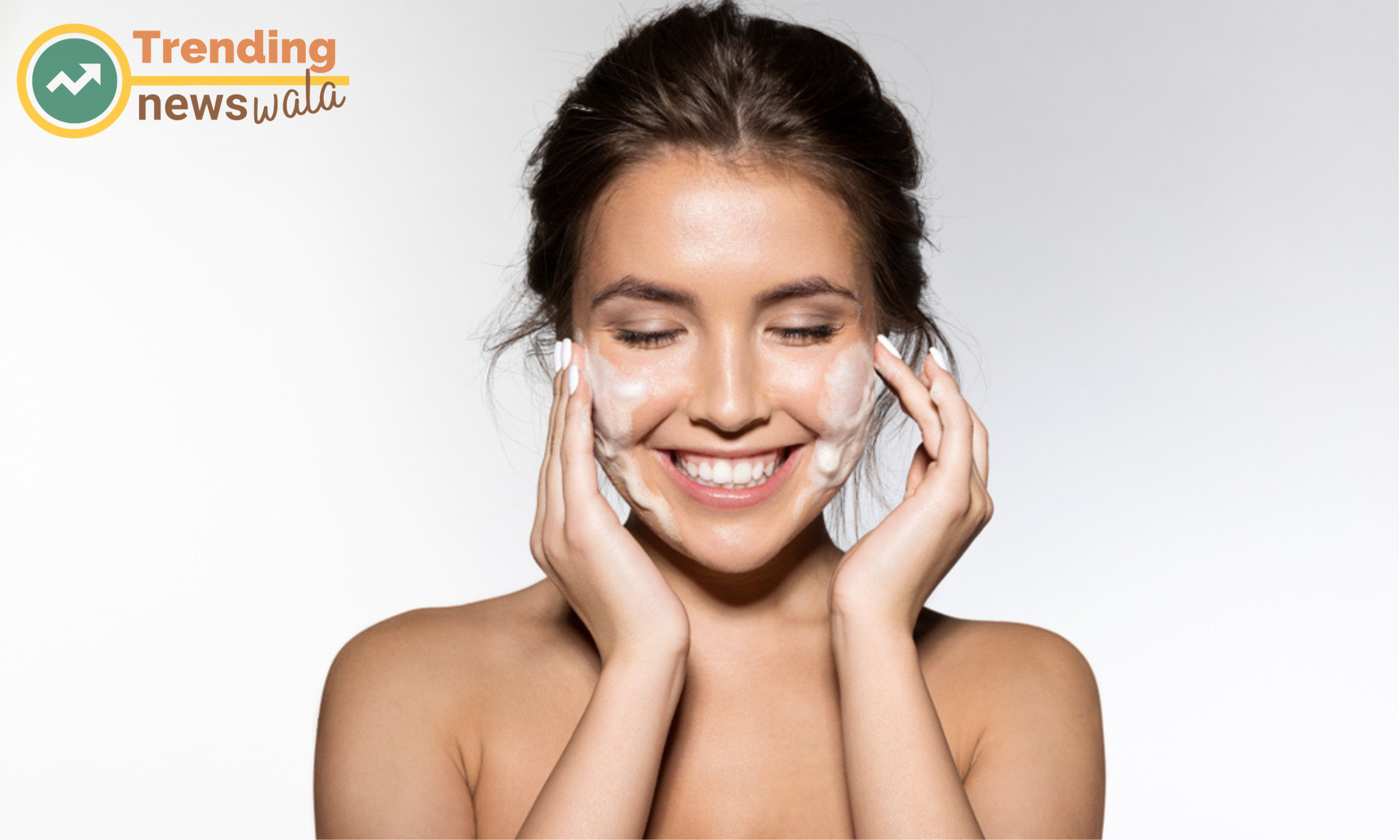
Avoiding touching your face is often recommended as a hygiene practice to reduce the risk of spreading germs and infections, especially during cold and flu seasons or in the context of a pandemic. Here are some details and tips to help you avoid touching your face:
Reasons for avoiding face touching:
- Germs on hands: Hands come into contact with various surfaces, and they can pick up germs along the way. Touching your face, especially your eyes, nose, and mouth, can transfer these germs to mucous membranes and potentially lead to infections.
- Preventing the spread of illnesses: Touching your face with contaminated hands is a common way for viruses and bacteria to enter your body. Avoiding face touching can help reduce the risk of respiratory and other infections.
How to avoid touching your face:
- Be conscious of the habit: Pay attention to your hand movements and try to be aware of when you are about to touch your face.
- Use tissues or handkerchiefs: If you need to touch your face, use a tissue or a clean handkerchief to avoid direct contact with your hands.
- Practice good hand hygiene: Wash your hands regularly with soap and water for at least 20 seconds, especially after being in public places or touching surfaces. If soap and water are not available, use hand sanitizer with at least 60% alcohol.
- Avoid unnecessary contact: Be mindful of unnecessary hand-to-face contact, such as resting your chin on your hand or rubbing your eyes.
Breaking the habit:
- Create awareness: Make a conscious effort to break the habit by reminding yourself regularly. You can set reminders or use techniques like keeping your hands occupied to minimize the temptation to touch your face.
- Practice over time: Breaking a habit takes time and repetition. Consistently working on avoiding face touching will make it a natural part of your routine.
Protective measures:
- Wearing a mask: In situations where wearing a mask is recommended, it not only helps protect others but also serves as a physical barrier, reducing the likelihood of touching your face.
- Eye protection: For added protection, especially in high-risk environments, consider wearing glasses or goggles to shield your eyes.
By incorporating these practices into your daily routine, you can minimize the risk of transferring germs from your hands to your face and help maintain good hygiene, contributing to your overall health and well-being.
Minimize touching your face to prevent the transfer of bacteria and dirt from your hands to your skin. This habit helps reduce the risk of breakouts and skin irritation.
Customized Skincare Routine
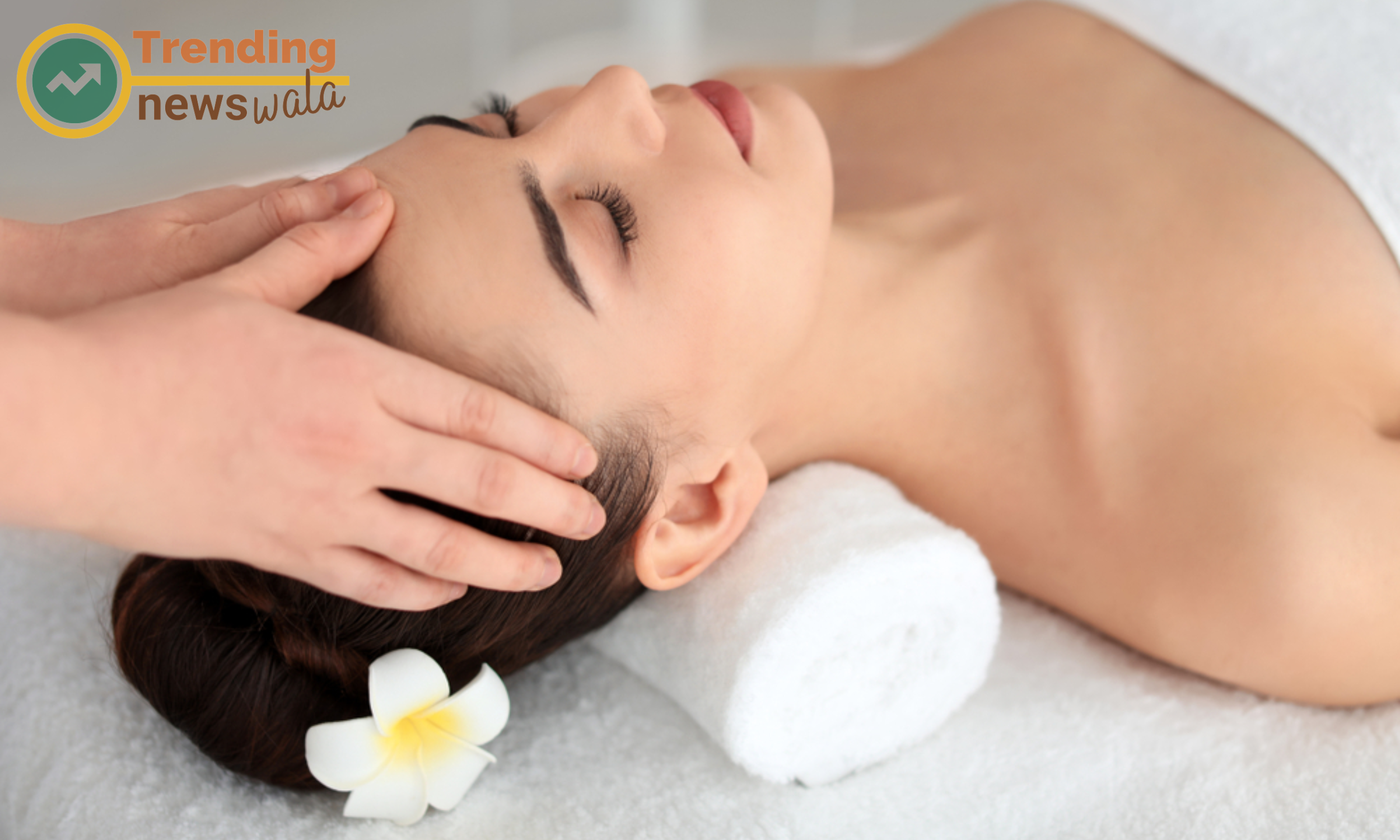
In the vast world of Skincare Beauty Tips for Girls, one size does not fit all. Each person's skin is unique, influenced by factors like genetics, environment, and lifestyle. A customized skincare routine is not a luxury but a necessity, allowing individuals to address specific concerns, nurture their skin, and achieve a healthy, radiant complexion. In this article, we will delve into the art of creating a personalized skincare routine tailored to meet the unique needs of your skin.
Identifying Your Skin Type: The first step in crafting a customized skincare routine is understanding your skin type. Whether it's oily, dry, combination, sensitive, or normal, recognizing your skin's natural tendencies helps in selecting products that cater to its unique requirements.
Understanding Your Skin Concerns: Beyond skin type, identifying specific concerns is crucial. Do you struggle with acne, hyperpigmentation, fine lines, or uneven texture? Pinpointing these concerns allows for the selection of targeted products that address and alleviate your particular skincare issues.
Morning Skincare Routine: A morning skincare routine is essential for refreshing the skin and providing protection throughout the day. Start with a gentle cleanser to remove impurities, followed by a toner to balance pH levels. Choose a serum that targets your primary concerns, whether it's brightening, hydration, or anti-aging. Seal the deal with a moisturizer and, most importantly, sunscreen with at least SPF 30 to shield your skin from harmful UV rays.
Evening Skincare Routine: The evening routine is dedicated to repair and rejuvenation. Begin by removing makeup with a suitable makeup remover or cleansing oil. Cleanse your face thoroughly, and consider incorporating exfoliation 2-3 times a week to promote cell turnover. Follow up with a toner, treatment or serum, and a nourishing night cream or moisturizer. For those with specific eye concerns, an eye cream can be a valuable addition.
Weekly Treatments: Weekly treatments can elevate your skincare routine. Integrate a mask 1-2 times a week to address specific issues like hydration, acne, or brightening. Include a more intensive exfoliation treatment, such as a chemical peel or mask, 1-2 times a week to enhance skin renewal.
Adjusting for Seasonal Changes: Your skin's needs can change with the seasons. Adjust your skincare routine accordingly, incorporating more hydration in the winter or heightened sun protection in the summer. Listen to your skin and adapt your routine as necessary.
Consistency and Dermatologist Consultation: Consistency is key to skincare success. Stick to your routine and allow time for products to show results. If persistent concerns or conditions arise, consider consulting a dermatologist for personalized advice and guidance.
Crafting a personalized skincare routine is a journey of self-discovery and care. By understanding your skin type, identifying concerns, and tailoring your routine with the right products, you can achieve a complexion that reflects your unique beauty. Remember, your skin deserves the attention and care that only a customized skincare routine can provide.
Tailor your skincare routine to your specific needs. This may include serums, spot treatments, or masks targeting concerns like acne, hyperpigmentation, or fine lines. Experiment with different products to find what works best for you.
Mindful Makeup Practices
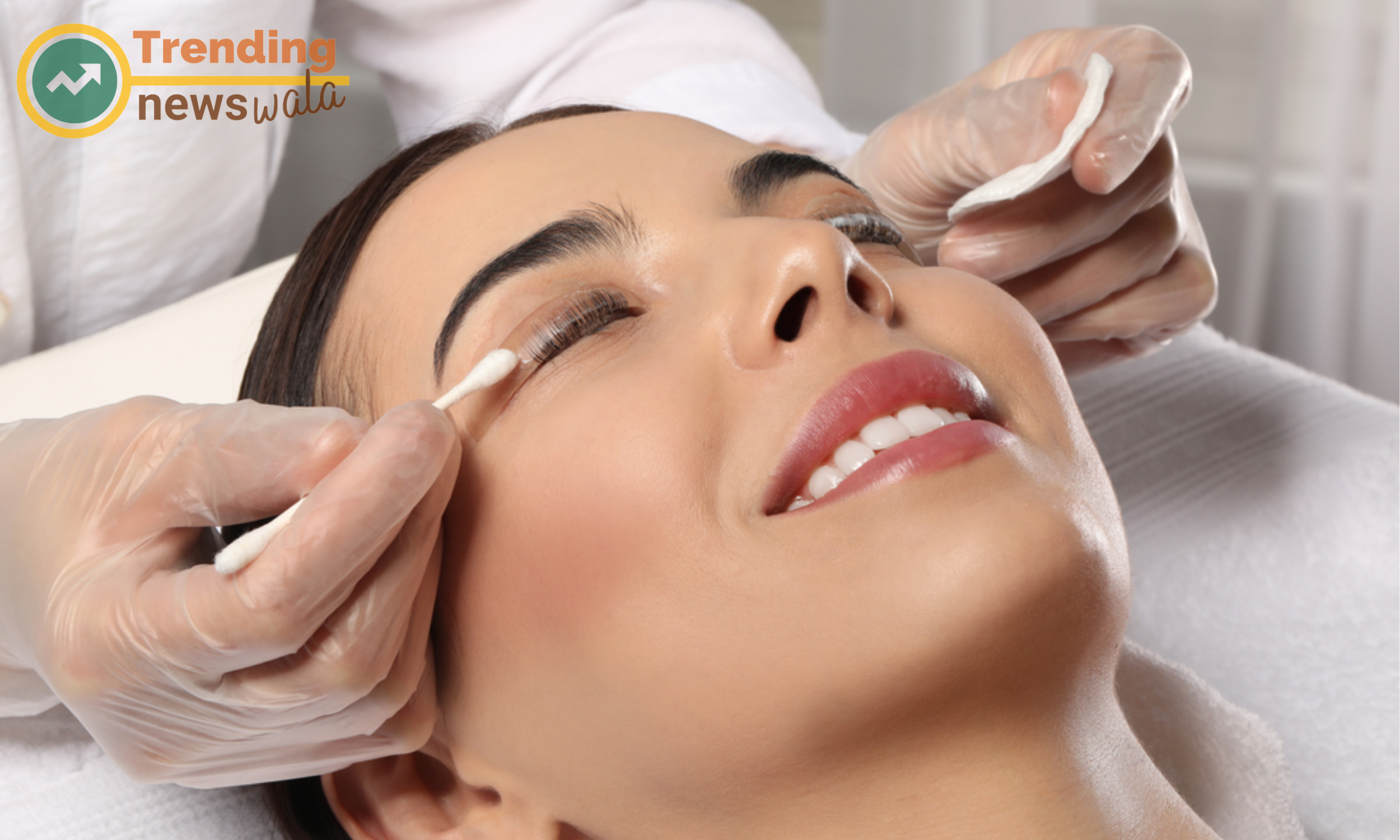
In the fast-paced world of beauty, where trends come and go, embracing mindful makeup practices offers a refreshing perspective on self-expression and self-care. Mindful makeup is not just about creating aesthetically pleasing looks but also cultivating a deeper connection with oneself. In this article, we will explore the principles of mindful makeup practices and how they contribute to a more holistic approach to beauty.
Understanding Mindful Makeup: Mindful makeup goes beyond the mere application of products; it involves a conscious and intentional approach to the entire process. It encourages individuals to be present, appreciating the ritual of makeup application as a form of self-expression and self-love. Mindful makeup practices prioritize quality over quantity, emphasizing the importance of choosing products that align with personal values and well-being.
Quality Over Quantity: In the world of mindful makeup, less is often more. Instead of succumbing to the allure of a vast collection of products, consider investing in high-quality items that enhance your natural beauty. Streamlining your makeup routine not only simplifies your life but also reduces waste and promotes a more sustainable approach to beauty.
Choosing Cruelty-Free and Ethical Products: Mindful makeup practices extend beyond personal benefits to encompass ethical considerations. Opt for cruelty-free and ethically sourced products that align with your values. This choice supports brands committed to animal welfare and sustainable practices, contributing to a more compassionate and conscious beauty industry.
Conscious Consumption: Mindful makeup also involves being conscious of your consumption habits. Before adding a new product to your collection, consider whether it aligns with your needs and values. Avoid falling into the trap of impulsive buying and instead invest in products that bring you joy, suit your lifestyle, and contribute to a clutter-free beauty space.
Savoring the Ritual: The application of makeup can be a mindful ritual in itself. Take the time to savor each step, from cleansing and moisturizing to the final touches of color. Appreciate the sensory experience of different textures, scents, and the transformative power of makeup as you create a look that reflects your mood and personality.
Mindful Removal: Just as important as the application is the removal of makeup. Treat your skin with care by using gentle, effective cleansers and taking the time to remove makeup thoroughly. This practice not only maintains the health of your skin but also reinforces the notion that beauty is not just about enhancement but also about embracing one's natural self.
Self Reflection and Empowerment: Mindful makeup practices encourage self-reflection and empowerment. Use makeup as a tool to express your identity, boost confidence, and celebrate your unique features. By approaching makeup with mindfulness, you can foster a positive relationship with your appearance and cultivate self-love.
Mindful makeup practices invite us to reimagine beauty as a holistic and intentional experience. By prioritizing quality, ethical choices, and a conscious approach to consumption, we can transform the act of applying makeup into a meaningful ritual that enhances not only our external appearance but also our inner well-being. Embrace mindful makeup as a journey of self-discovery, self-expression, and self-love.
Opt for makeup products that are gentle on the skin and avoid sleeping with makeup on. Always remove your makeup thoroughly before bedtime to allow your skin to breathe and regenerate overnight.
Stay Stress-Free
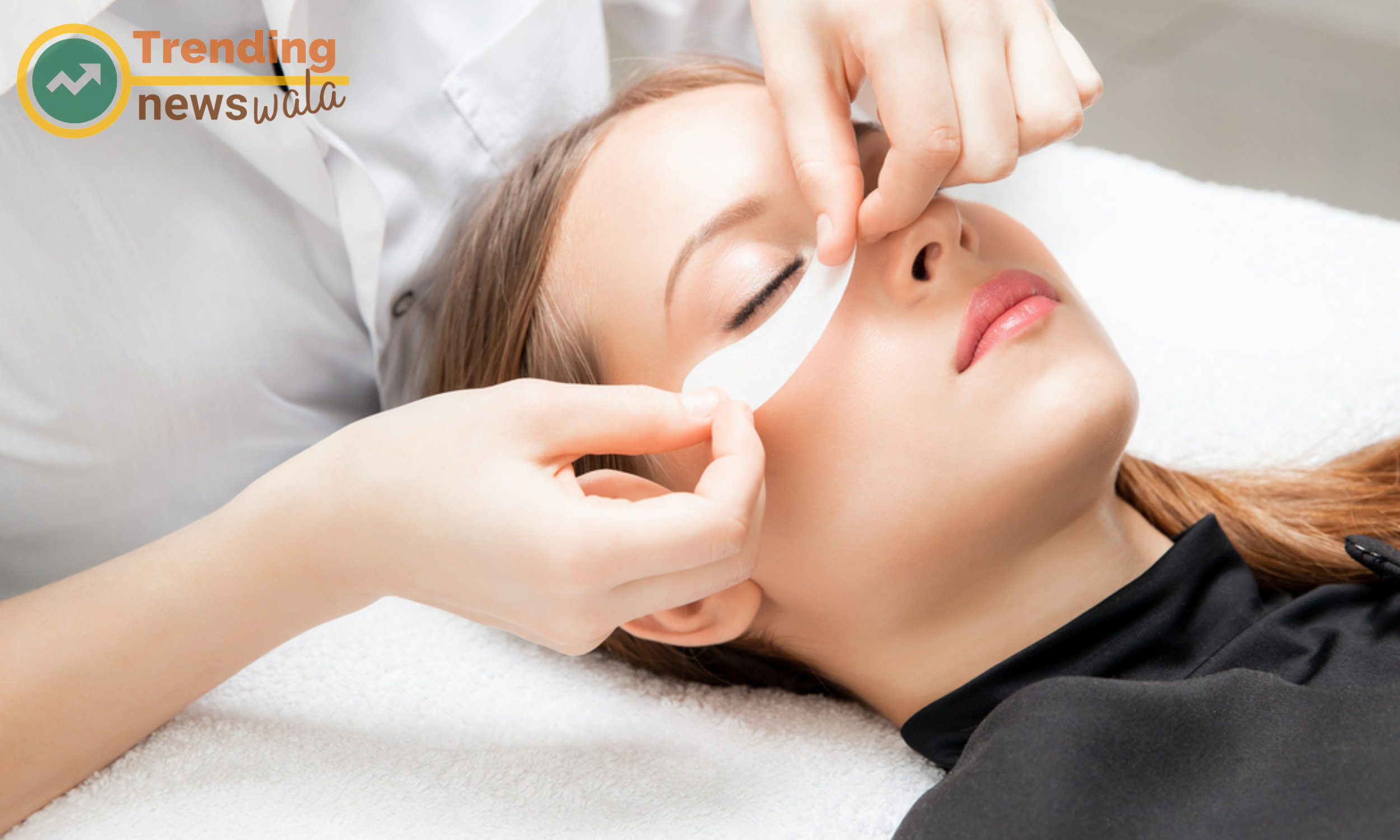
In the hustle and bustle of modern life, staying stress-free has become a sought-after goal for many. Amidst deadlines, responsibilities, and daily challenges, it's crucial to cultivate practices that promote mental and emotional well-being. In this article, we will explore a holistic approach to staying stress-free, encompassing various aspects of life to achieve a more balanced and serene existence.
Mindfulness Meditation: Embracing mindfulness meditation is a powerful tool in staying stress-free. Taking a few minutes each day to sit in stillness, focus on your breath, and cultivate awareness of the present moment can significantly reduce stress levels Mindfulness helps break the cycle of overthinking, allowing for clarity and a sense of calm.
Regular Exercise: Physical activity is not just beneficial for your body but also for your mind. Engaging in regular exercise releases endorphins, the body's natural mood lifters, and helps combat stress. Whether it's a brisk walk, a yoga session, or a full workout routine, find an activity that brings you joy and make it a regular part of your routine.
Balanced Nutrition: The connection between stress and nutrition is profound. Consuming a well-balanced diet that includes a variety of fruits, vegetables, lean proteins, and whole grains provides the body with the nutrients it needs to function optimally. Avoid excessive caffeine and sugar, as these can contribute to heightened stress levels.
Adequate Sleep: Quality sleep is a non-negotiable aspect of staying stress-free. Lack of sleep can impair cognitive function, elevate stress hormones, and hinder emotional resilience. Establish a consistent sleep routine, create a conducive sleep environment, and prioritize getting the recommended 7-9 hours of sleep per night.
Effective Time Management: Organizing your time efficiently can significantly reduce stress. Break tasks into manageable steps, prioritize responsibilities, and set realistic goals. Learn to say no when necessary, and be mindful of your commitments to avoid overwhelming yourself with an excessive workload.
Social Connections: Maintaining strong social connections is essential for emotional well-being. Surround yourself with a supportive network of friends and family. Share your thoughts and feelings, and be receptive to the support others offer. Meaningful connections can provide comfort and perspective during challenging times.
Mindful Breathing Techniques: Incorporate mindful breathing techniques into your daily routine. Deep, intentional breaths activate the body's relaxation response, calming the nervous system and reducing stress. Take moments throughout the day to practice deep breathing, especially during hectic periods.
Hobbies and Leisure Activities: Engaging in activities you love is a potent stress-reliever. Whether it's reading, painting, gardening, or any hobby that brings you joy, dedicating time to activities outside of work and responsibilities is crucial for maintaining balance and a sense of fulfillment.
Limiting Information Overload: In the digital age, constant exposure to information can contribute to stress. Set boundaries for your media consumption, including social media, news, and other sources of information. Allow yourself periods of digital detox to foster mental clarity and reduce information overload.
Staying stress-free is not a one-size-fits-all endeavor; it requires a holistic and personalized approach. By incorporating mindfulness, physical activity, balanced nutrition, quality sleep, effective time management, social connections, breathing techniques, leisure activities, and mindful consumption of information into your life, you can pave the way for a more serene and balanced existence. Remember, the journey to a stress-free life is ongoing, and small, consistent changes can lead to profound improvements in your overall well-being.
Chronic stress can negatively impact your skin's health. Incorporate stress-relief practices into your routine, such as meditation, yoga, or hobbies that help you unwind and relax.

What is the basic skincare routine every girl should follow?
A basic skincare routine includes cleansing, toning, moisturizing, and sun protection. Cleansing removes impurities, toning balances the skin's pH, moisturizing hydrates the skin, and sunscreen protects against UV rays.
How often should I wash my face?
It's generally recommended to wash your face twice a day – once in the morning and once before bed. Overwashing can strip the skin of natural oils, so find a balance that works for your skin type.
What can I do to reduce acne and breakouts?
To reduce acne, maintain a consistent skincare routine, avoid touching your face, clean your makeup tools regularly, and consider using non-comedogenic products. If acne persists, consult with a dermatologist.
Is it necessary to use sunscreen every day?
Yes, sunscreen is essential for protecting your skin from harmful UV rays that can cause premature aging and skin damage. Use a broad-spectrum sunscreen with at least SPF 30 every morning, even on cloudy days.
How can I get rid of dark circles under my eyes?
To reduce dark circles, ensure you get enough sleep, stay hydrated, and use eye creams with ingredients like vitamin C or caffeine. Cold compresses and a healthy diet can also contribute to improving the appearance of dark circles.
What skincare ingredients should I look for?
Look for ingredients like hyaluronic acid for hydration, retinol for anti-aging, vitamin C for brightening, and salicylic acid for acne-prone skin. Patch-test new products to ensure compatibility with your skin.
How can I manage oily skin?
Manage oily skin by using a gentle cleanser, oil-free moisturizer, and products containing ingredients like salicylic acid. Avoid over-drying your skin, as this can stimulate more oil production.
What is the significance of a nighttime skincare routine?
A nighttime routine allows your skin to repair and regenerate. Include cleansing, serums or treatments, and a moisturizer suitable for your skin type. Consider using a retinoid for anti-aging benefits.
Can natural remedies improve skin health?
Some natural remedies, like aloe vera, honey, and tea tree oil, can have skincare benefits. However, it's essential to be cautious and perform patch tests, as natural ingredients may not be suitable for all skin types.
How do I find the right products for my skin?
Identify your skin type and specific concerns. Research and patch-test products before incorporating them into your routine. Consult with a dermatologist for personalized recommendations based on your skin's unique needs.





